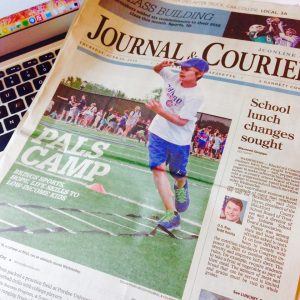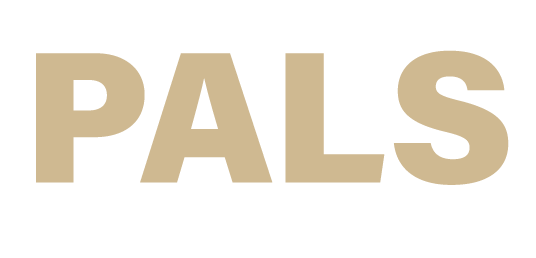PALS’ Impact Measured in Research
 The University, the Department of Health and Kinesiology and the College of Health and Human Sciences have sponsored the PALS program since 2002. The program serves youth who are at risk academically, socially, and physically. Through the four character pillars of respect, responsibility, courage, and caring, our youth are exposed to the life-changing experiences offered with PALS.
The University, the Department of Health and Kinesiology and the College of Health and Human Sciences have sponsored the PALS program since 2002. The program serves youth who are at risk academically, socially, and physically. Through the four character pillars of respect, responsibility, courage, and caring, our youth are exposed to the life-changing experiences offered with PALS.
Ten years of research have demonstrated the transformative impact PALS has on the lives of these youth. While encompassing the discovery, learning, and engagement missions of Purdue, several key partnerships make the program and the research possible, primarily The Brees Dream Foundation, Purdue Federal Credit Union, the University and College of Health and Human Sciences, and many other corporate and community partners.
PALS is considered a laboratory for studying the impact of positive social interactions, good nutrition and dietary education, and active summer programming through academics, sports, and character education. Through these activities, the counselors help youth grow and develop their own dreams of success, while enjoying experiences in world-class facilities at Purdue.
Our research has consistently shown that children who participate in PALS develop friendships without being in gangs. At the same time, they learn positive life lessons from the student camp staff/role models—some of whom are current Purdue athletes—and some of whom are our previous participants. Our research also demonstrates these friendships and relationships have a significant and measurable impact on self-esteem, motivation for physical activity, and most importantly on their hope for the future.
At the same time, we are conducting a longitudinal study comparing PALS campers to a demographically-matched sample of children who are not in PALS on a variety of academic success markers. By hosting this program at Purdue, we reinforce the importance of conducting peer reviewed and publishable research on the program so other institutions can see the benefits of this program and learn from it.
